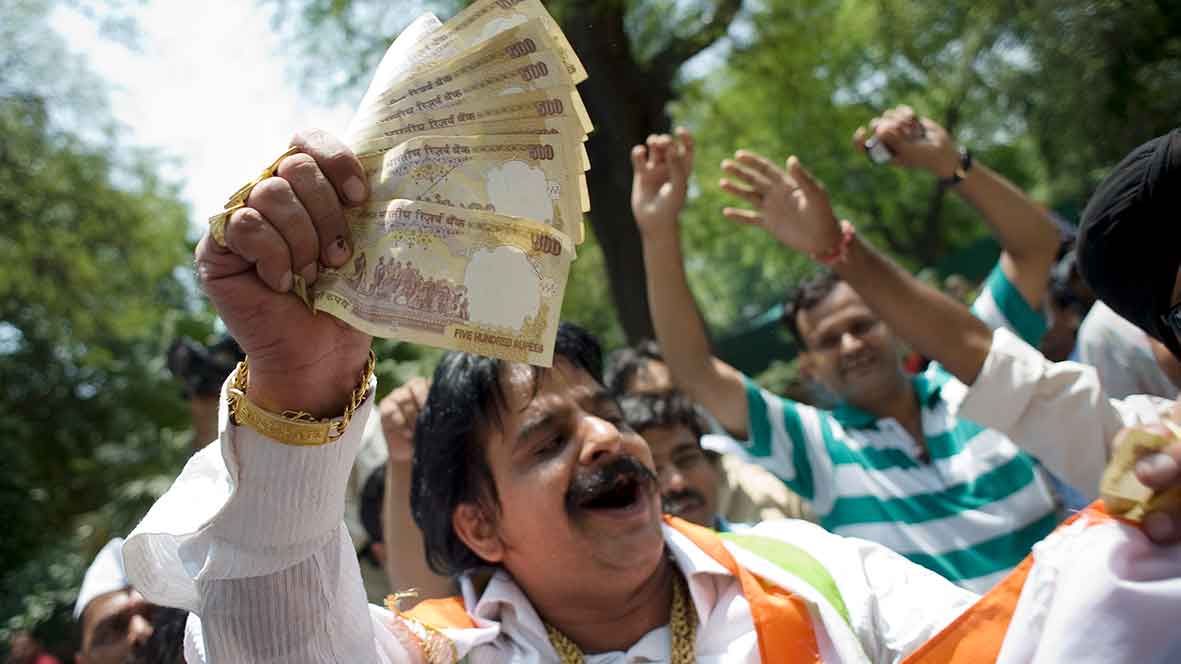India’s dream of a cashless society is over – which is good news for ATM operator TSN

Pic: Getty
India’s attempt to go cashless in December has all but failed — which is good news for Transaction Solutions International which owns a 25 per cent share of 14,000 ATMs in the sub-continent.
Demand for cash is returning following India’s less-than-successful attempt to convert to a digital economy, says Transaction Solutions International (ASX:TSN).
That may be a trigger for TSN to look into buying the 75 per cent of ATM operator Transaction Solutions India (or TSI for short) that it doesn’t own.
“Cash demand from ATMs is bouncing back since demonetisation,” the company said on Monday.
“During the last quarter ending 30 September 2017 cash is now being loaded into ATMs with similar volumes of cash as pre-demonetisation September 2016 levels.”
“The overriding bottleneck in driving digital transactions is the lack of adequate secured infrastructure. These doubts and inconveniences have seen people continuing to use cash as their preferred mode of transacting.”
Going cashless
In December last year the Narendra Modi-led Indian government cancelled all 500 and 1000 rupee notes overnight.
These banknotes made up about 86 per cent of the currency in circulation in India at the time.
It was sold as a way to digitise the economy while cracking down on counterfeit notes and the black economy, as the wealthy were seen as hoarding the majority of the high value banknotes.
But the laudable aim has not worked, according to data from companies like TSN and the Reserve Bank of India (RBI).
An RBI report in November estimated that Rs15.28 trillion — or $310 billion — of the cancelled notes still made their way into the bank system, suggesting that most people were able to realise the notes’ value even after they were supposed to be worthless.
India finance ministry data shows there was $313 billion worth of high value notes in circulation before Mr Modi made his move.
What it has achieved, according to newspaper the Economic Times, is cut the price and size of weddings by 30-40 per cent as couples are forced to use cheques and digital payment options and the rich shy from obvious displays of wealth.
Is an Indian acquisition on the cards?
TSN was supposed to buy the rest of TSI from private equity firm CX Partners, but instead chose in August to buy a Sydney fintech company.
TSN chief Jeffrey Lai told Stockhead at the time they would only consider buying TSI if ATM transactions and revenue rose to pre-demonetisation levels.
While the company did not respond to queries before publication, both metrics are back at those levels.
Revenue in October hit about $4.3 million.
In November 2016 the company reported second quarter revenue was about $12 million – or an average monthly take of $4 million.
And ATM transaction figures in October increased to 1.38 million a day.
Figures for the second quarter last year – the last exact pre-demonetisation figures provided by TSN – showed transaction volumes were 130 million, or about 1.4 million a day on average.
TSN shares were flat on Monday at 0.8c. It had $2.7 million in cash at the end of the September quarter.
UNLOCK INSIGHTS
Discover the untold stories of emerging ASX stocks.
Daily news and expert analysis, it's free to subscribe.
By proceeding, you confirm you understand that we handle personal information in accordance with our Privacy Policy.







